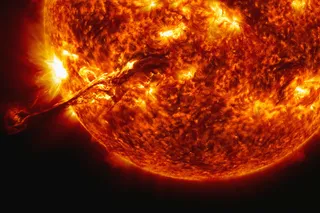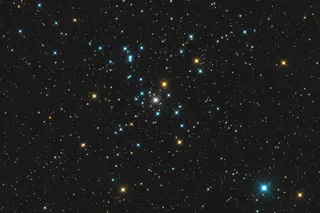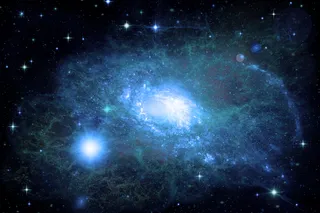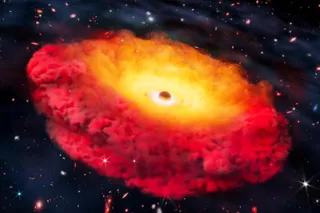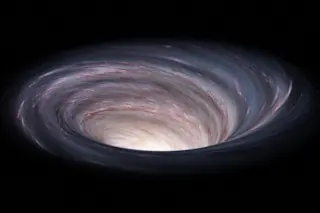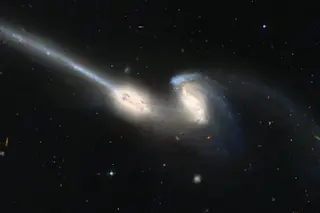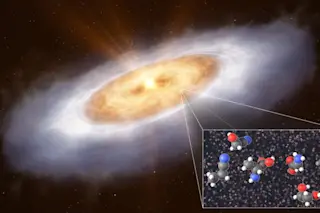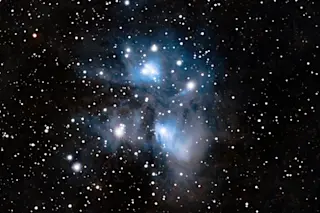The Fermi Gamma-ray Space Telescope may have just gotten a hint in its hunt for the mysterious dark matter that is thought to make up the bulk of the universe's mass. A group of astrophysicists has run a simulation of the distribution of dark matter in a galaxy like our Milky Way, and say that if the telescope scans the right region of space it may be able to detect gamma rays given off by collisions between the particles that are thought to make up dark matter (which have never been directly detected, and are still speculative). Previously, some cosmologists have proposed that
the best chance of a detection lies in nearby dwarf galaxies, since they should contain dense nuggets of dark matter that could be relatively easy to pinpoint. But a new study argues that a diffuse dark matter 'halo' surrounding the Milky Way offers an even better shot ...


